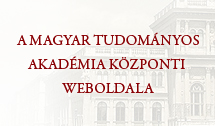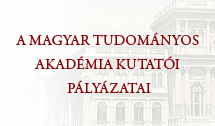The Institute of Philosophy RCH HAS cordially invites you to its upcoming talk:
Justin Sytsma (Victoria University of Wellington):
Are religious philosophers less analytic?
Date: 5 December 2017, 16:00
Venue: 4. Tóth Kálmán st., Budapest, 1097; 7th floor
Abstract:
Some researchers in philosophy of religion have charged that the sub-discipline exhibits a number of features of poor health, prominently including that “partisanship is so entrenched that most philosophers of religion, instead of being alarmed by it, just take it for granted” (Draper and Nichols, 2013, 421). And researchers in experimental philosophy of religion have presented empirical work that supports this contention, arguing that it shows that confirmation bias plays a notable role in the acceptance of natural theological arguments among philosophers (De Cruz, 2014; Tobia, 2015; De Cruz and De Smedt, 2016).
But while these studies indicate that there is a correlation between religious belief and judgments about natural theological arguments, they do not establish that causation runs from belief to judgment as has been claimed. In this paper I offer an alternative explanation, suggesting that thinking style is a plausible common cause. I note that previous research has shown a significant negative correlation between analytic thinking style and both religious belief and religious engagement in the general population (Shenhav, Rand, and Greene, 2012; Gervaise and Norenzayan, 2012; Pennycook et al., 2012, 2013; Jack et al., 2016).
Further, other research has shown a significant positive correlation between analytic thinking style and training in philosophy that is independent of overall level of education (Livengood et al., 2010).
Pulling these threads together, I hypothesize that there is an especially strong correlation between thinking style and religiosity among philosophers. This hypothesis is tested by looking at a sample of 524 people with an advanced degree in philosophy. The results support the hypothesis, showing a medium-large negative correlation between analytic thinking style and religious engagement that is roughly twice as strong as has been reported for the general population (r=-0.39 among men, r=-0.34 among women). And the correlation is even stronger if we restrict to Christian theists and non-theists (r=-0.61 among men, r=-0.62 among women).


